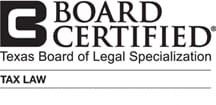Texas Probate and Estate Administration Attorney
When someone dies owning properties or assets, the decedent's estate must generally be administered after death pursuant to certain statutorily provided rules and procedures. The two most common administrations are generally administrations involving a properly executed will and administrations involving an estate with no will.
When a person dies without a validly executed will, the decedent is said to have died "intestate" (without a will). The administration of an intestate estate (involving no will) is almost always a much more cumbersome, time-consuming and expensive process than the administration of an estate where there is a validly executed will, thus underscoring the importance of having a will.
Identify Estate Assets, Pay Estate Debts, File Estate Tax Returns, Distribute Remaining Estate Assets to Heirs
Whether administering an estate with a will or one without one, the probate and estate administration process generally includes identifying and collecting a decedent's assets and properties, identifying and/or locating the decedent's heirs, paying estate liabilities, including the liabilities of decedent still outstanding at death, paying any estate and income taxes relating to the estate, filing related tax returns, and distributing assets and properties to the decedent's heirs
Our law firm deals promptly and professionally with all aspects of the probate and estate administration process in accordance with prescribed legal requirements. Robert M. Mendell is a Houston attorney with more than 35 years of experience. He is a Certified Public Accountant (CPA) in Texas and is board certified by the Texas Board of Legal Specialization as a tax law specialist.
Robert M. Mendell, Prompt Professional Service
Our firm is available to provide you and your family with competent legal representation regarding probate and estate administration matters.
- Probate administration relates to the gathering and settling of a decedent's assets and liabilities for a final distribution of all remaining assets to the heirs of the decedent and provides for a legal chain of title with respect to such assets from the decedent to his or her heirs.
- The probate process has many steps generally administered in conjunction with the probate courts to help ensure that Texas probate law is properly and dutifully carried out.
- When a person dies intestate (without a will), intestacy and heirship matters will be determined by Texas laws governing the rules of inheritance involving decedent estates with no wills.
Please see our FAQs on Probate and Estate Administration.
In all of these areas of law, it is a good idea to have an experienced lawyer who will bring prompt, professional service to every step.





